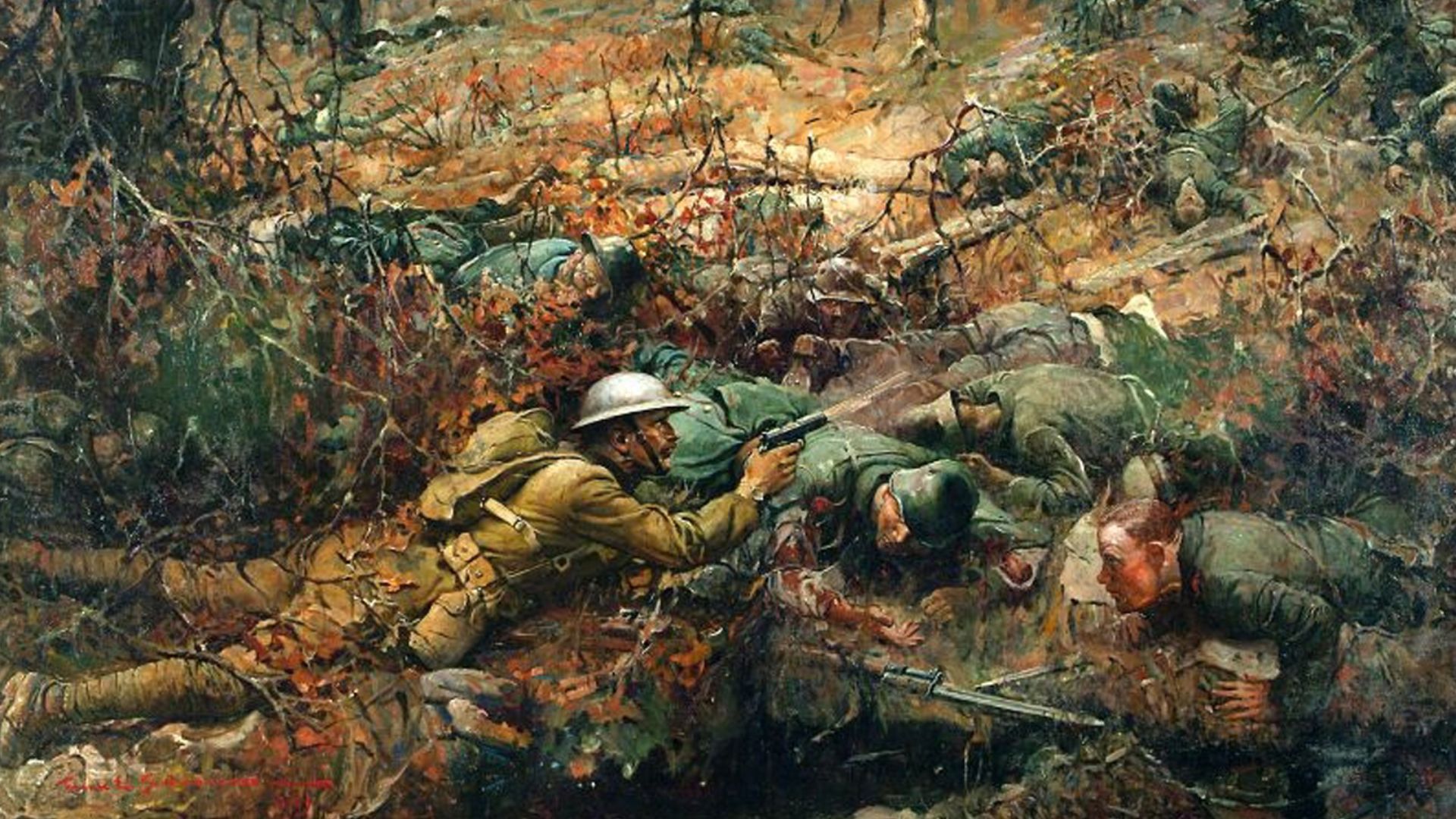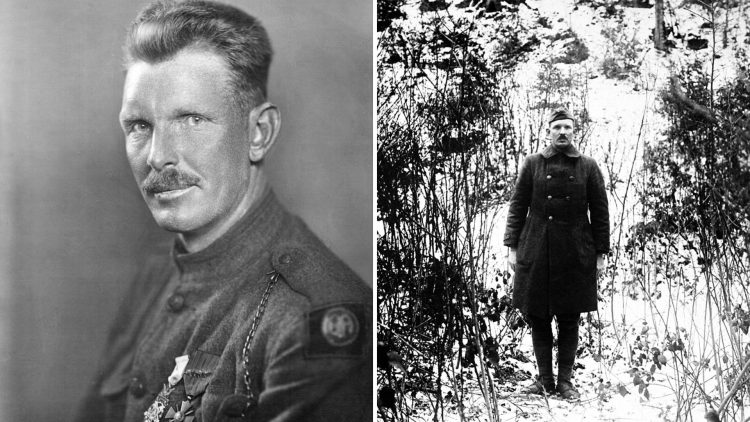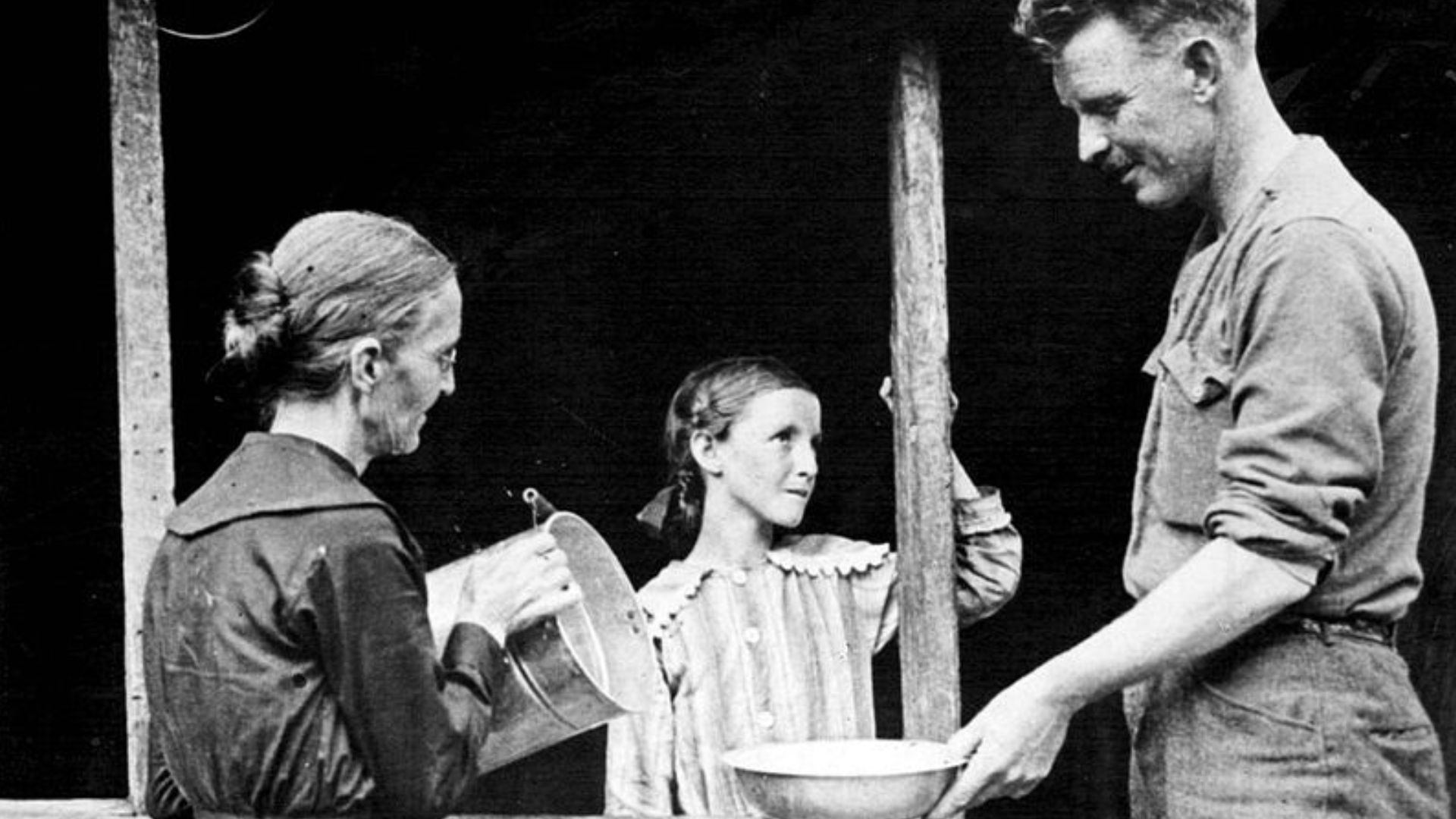However, during the advance on October 8, 1918, York’s unit came under intense fire from a German machine-gun nest positioned on a hill in the Argonne Forest.
With most of the American soldiers either killed or wounded, York suddenly found himself in charge of a small group of surviving men—just 17 soldiers.
As the Germans rained machine-gun fire on the Americans, York made a fateful decision: to take the fight to the enemy.
York’s Unbelievable Feat of Bravery
In a scene that seems straight out of a Hollywood movie, York stood his ground under heavy fire, displaying incredible calm and precision.
Using his rifle with expert accuracy, he began picking off the German machine gunners one by one.
As York later recounted in his diary:
“[T]hose machine guns were spitting fire and cutting down the undergrowth all around me… I didn’t have time to dodge behind a tree or dive into the brush… every time I saw a head I just touched it off.”
“All the time, I kept yelling at them to come down. I didn’t want to kill any more than I had to. But it was they or I. And I was giving them the best I had.”
Despite the odds, York’s determination never wavered. He not only killed over 20 German soldiers but also called out for the remaining troops to surrender.
Realizing they were facing an unstoppable force, the German commander surrendered his garrison of about 90 men.
On their way back to Allied lines, York and his men captured even more prisoners, bringing the total to 132.
York’s leadership and heroism in the face of overwhelming danger saved countless lives and turned the tide of that battle.

Recognition and the Medal of Honor
For his extraordinary bravery, Alvin York was awarded the Medal of Honor in April 1919, the highest military decoration awarded by the United States.
General John J. Pershing, commander of the American Expeditionary Forces, called York “the greatest civilian soldier” of World War I, while The New York Times lauded him as the “war’s biggest hero.”
Promoted to sergeant, York remained on the front lines until November 1, 1918, just days before the Armistice was signed, bringing an end to World War I.
Below is an excerpt of his Medal of Honor citation:
“Fearlessly leading seven men, he charged with great daring a machine-gun nest which was pouring deadly and incessant fire upon his platoon…”
A Legacy of Humility and Service
Despite becoming a national hero, Alvin York remained a humble man. He downplayed his actions during the war, emphasizing that he only did what he had to do.
After returning home, York used his fame not for personal gain but to serve others.
He founded the York Industrial Institute in rural Tennessee, a school dedicated to educating underprivileged children.
Throughout his life, he was an advocate for education, veterans’ rights, and rural development.
In 1941, York’s heroism was immortalized in the Hollywood film Sergeant York, starring Gary Cooper, who won an Academy Award for his portrayal of the humble yet brave soldier.
Even in his later years, York remained committed to the values of service, duty, and sacrifice.
When York passed away in 1964, then-President Lyndon B. Johnson honored him as a symbol of American courage and sacrifice, stating that York epitomized the “gallantry of American fighting men” and their dedication to the cause of freedom.
The Impact of Alvin York’s Heroism
Alvin York’s actions on October 8, 1918, are a testament to the bravery and resourcefulness of the American soldier.
In a single moment, faced with insurmountable odds, York exemplified the kind of selflessness and determination that defines true heroism.
His story not only inspired a generation of Americans but continues to serve as a reminder of the values of courage, sacrifice, and humility.
The Medal of Honor is a symbol of the highest achievements in military service, and York’s receipt of this honor places him in a distinguished group of individuals who have gone above and beyond in service to their country.
York’s legacy is not just one of military success but of a lifetime dedicated to the betterment of others, demonstrating that even the greatest heroes are driven by a sense of duty to their fellow man.
Final Thoughts: Remembering Alvin York Today
On this day, as we reflect on Corporal Alvin C. York’s incredible actions in the Argonne Forest, we are reminded of the sacrifices made by those who serve in the name of freedom.
York’s story is a shining example of how one individual can change the course of history through courage, determination, and a steadfast commitment to doing what is right.
October 8, 1918, will forever be remembered as a day when one man’s bravery made all the difference in the world.
—
Disclaimer: SOFREP utilizes AI for image generation and article research. Occasionally, it’s like handing a chimpanzee the keys to your liquor cabinet. It’s not always perfect and if a mistake is made, we own up to it full stop. In a world where information comes at us in tidal waves, it is an important tool that helps us sift through the brass for live rounds.











COMMENTS